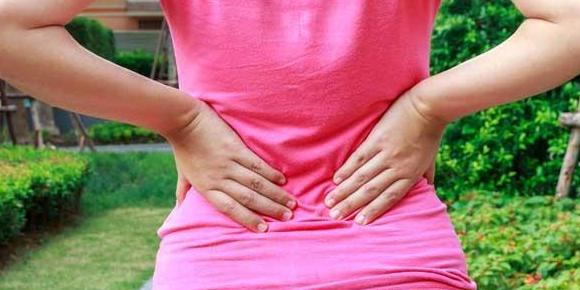Chronic Low Back Pain Relieved with Acupuncture

- posted: Feb. 17, 2020
Chronic low back pain may be eased with a surprising low-cost, simple, low side-effects, relaxing treatment option - acupuncture.
The evidence supports the possibility that acupuncture could help thousands suffering from chronic low back pain. Safe, effective, and pleasant to experience, acupuncture may be the hidden gem to help you or a loved one discover relief from a chronically-aching low back.
Acupuncture is gaining momentum in the field of pain management and modern science is tracking its mode of operation and effectiveness. In fact, the National Institutes for Health and Clinical Excellence suggests acupuncture as a primary treatment for chronic low back pain, as patients undergoing treatments with positive expectations respond superior to those undergoing conventional care.
One study investigated acupuncture treatment reactions of patients after 10 sessions, and the great majority of patients claimed relaxation and willingness to experience future acupuncture treatments as their "reaction." How can these findings be as needles step above non-steroidal anti-inflammatory drugs in alleviating chronic low back pain? Looking into brain function to explain these perky findings, MRI of brain activity after acupuncture needling for chronic low back pain shows activation of the sensorimotor cortical network with deactivation of the limbic-paralimbic neocortical network. Simply put, this brain study proves that acupuncture is "turning on and shutting down" brain pathways, changing brain state, and the body is responding accordingly.
Acupuncture trumped a combination of drugs, physical therapy and exercise (conventional group) in a study documenting acupuncture treatment outcomes for chronic low back pain. Acupuncture sessions were scheduled twice per week for six months. The acupuncture group responded with a 47 percent improvement in pain and function compared to the conventional group improving 27 percent.
Another study demonstrated chronic low back pain eased with acupuncture sessions at eight weeks, with mean dysfunction scores improvements of 4.4 points compared with 2.1 points for those receiving usual care. Further research monitored a group receiving a 12-week session of exercise and auricular acupuncture (stimulation of ear points to elicit a determined bodily response) versus a 12-week exercise program alone. The exercise and acupuncture group demonstrated a greater mean improvement of 10.7 percent in the Oswestry Disability Questionnaire at six months compared with the exercise group at 6.7 percent. The group enhanced with acupuncture also experienced the benefits of greater mean improvements in quality of life, low back pain intensity and bothersomeness, and fear-avoidance beliefs.
Park East Chiropractic
4632 85th Ave N
Brooklyn Park, MN 55443

